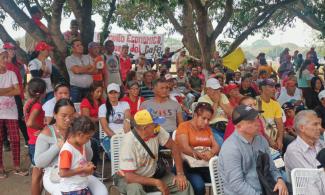
10 years after the death of Comandante Hugo Chávez Frías, “commune or nothing” remains the battle cry of the Venezuelan people advancing in the Bolivarian revolution
cross-posted from Peoples Dispatch
On 20 October 2012, during the last council of ministers of the Venezuelan government attended by Hugo Chávez Frías, the then president pronounced what went down in history as the golpe de timón, the “change of direction” of the Bolivarian revolution’s policy towards socialism. In his speech at the Miraflores Palace, Chávez called for self-criticism and higher efficiency of state management, not simply by increasing the financial resources and institutional power of the ministries, but by strengthening people’s power through the comunas (communes).
The Bolivarian revolution was not to be limited to the seizure of the bourgeois state and the replacement of one ruling class with another. At the center of the process was always the aspiration to lead the transformation to a Communal State in which the communes form the political and economic basis of the future socialist society and in which the organized people build the conditions to meet their own needs. Chávez concluded his speech with the slogan “commune or nothing”—either the revolution invests in people’s self-organization and self-government, or the revolution is betrayed.
The problem Chávez posed in his last speech to the council of ministers refers to one of the central problems of any revolutionary movement, namely the relationship between the party, government, and organized people in the process of building socialism. Based on a meticulous study of revolutionary experiences in history, Chávez asked himself how to build the political process of socialism beyond the action of the state, and directly with the people.
Chávez’s slogan from 10 years ago has in the meantime grown and turned into concrete projects that the organized Venezuelan people continue to protect using all means necessary as they advance along the path of the socialist revolution.
Strengthening the popular base of the Bolivarian revolution
Beyond the rhetoric of the Western media, the Venezuelan people still constitute the key actors in the Bolivarian revolution. For many, the communes serve as a primary instrument for building socialism. The Ministry of Popular Power for the Communes and Social Movements, led by Jorge Arreaza, has registered 3,600 communes. However, according to Ángel Prado, one of the founders of the El Maizal commune in the state of Lara and a member of the national leadership of the Union Comunera, “There are only about 500 communes really active throughout the country.” In 2021, Prado was also elected mayor of Simón Planas for the PSUV, the United Socialist Party of Venezuela founded by Chávez in 2007.
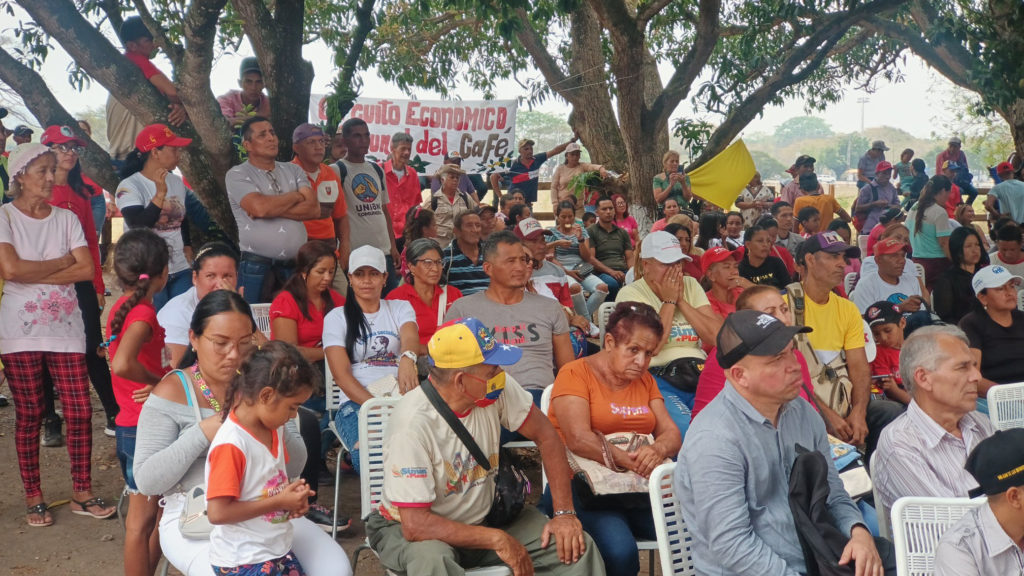
On March 4 and 5 of 2022, some 60 communes from the five regions of Venezuela founded the Union Comunera in a first congress held in the El Maizal commune. The Union Comunera is a kind of trade union of the communes, the result of an organizational process started years ago. Today, it occupies a decisive role in the daily life of the communes: it coordinates and acts as a multiplier of the communes’ experiences accumulated over the last 15 years, elaborates and disseminates—internally and externally—the organization’s political line, and builds political, ideological and technical training programs according to the needs in the territories. “The Union Comunera was an important step forward in stabilizing the idea of communes in the country,” Prado adds.
El Maizal: strengthening territorial agricultural production
The El Maizal commune is one of the most dynamic communal experiences in the country. Established on March 5, 2009, it encompasses a territory of 2,300 hectares between the two states of Lara and Portugesa in the west of the country and more than 3,500 families with a total of 14,320 people. This is a territory that before the start of the Bolivarian revolution was abandoned by public institutions and where people lived in absolute poverty with precarious housing and an agricultural production that was barely enough for their own consumption. Surplus products were bought by intermediary traders who paid them a paltry price. This reproduced the subordination of direct producers to the arbitrariness of middlemen, large landowners, and multinational corporations.
With the rise of Chavismo, the situation changed radically. “In 2009, the Chávez government enlarged the highway connecting Caracas with the West. The Comandante visited the construction site and stopped at the municipality of Sarare where he visited us. This meeting was decisive for the development of our communes and thus the whole territory,” says José Luis Sifontes, one of the PSUV’s provincial commune policy coordinators. “From 2009, we started to occupy abandoned land and greenhouses and set up communal production units that were then regularized by the government. We have also built houses for about 300 families and school facilities for the whole territory. The funding came from the Great Housing Mission and the Ministry of People’s Power for Education, but we did the work ourselves.”
The beginnings of the El Maizal commune are exemplary for the dialectic between the socialist government and the people’s power of the communes. Driven by Chávez’s electoral victory and the democratization of the country’s political and economic structures, the self-organized people acted on the territory, creating the conditions to meet their needs autonomously. The Chavista government, in turn, provides support where the communes need it, respecting the forms of territorial self-government. This is also the framework that can help one understand the regularization of occupied land, the financing of housing and schools and many other government projects in the territories. The government therefore does not simply control its citizens with policies from above, but provides the framework in which the people expand their participation from below. The commune activists insist, however, that building self-government is not simply a (precarious) balancing act between public institutions and popular power, but the permanent quest for total autonomy in the territories through communes.
Food sovereignty and internationalist solidarity
Today, 14 years after the foundation of El Maizal commune, around 120 direct producers run 14 food production units: white and yellow maize, beef and pork, eggs, milk and cheese, coffee and various vegetables. In addition, a company created in 2011 manages the distribution of gas throughout the commune. Thanks to this collective management of the production and distribution of basic necessities, the commune largely succeeds in guaranteeing food sovereignty, which the activists describe as a fundamental weapon against the sanctions imposed by the United States, which, especially during the years 2015 and 2021, caused severe consequences among the Venezuelan population.
A second fundamental weapon against the political and economic isolation produced by US imperialism is international solidarity. The Landless Rural Workers’ Movement of Brazil (MST) has sent its members to be part of its internationalist brigade in Venezuela since 2005. Their function is summed up in their slogan technicalize knowledge, elevate consciousness. In the different areas of agricultural production in the country, the MST supports producers thanks to the experience and knowledge accumulated over the last 40 years of occupying land, building camps all over Brazil, and developing sustainable agriculture against agribusiness that exploits workers and destroys territories.
In the El Maizal commune, specifically, the internationalist brigade has helped run the Che Guevara Agricultural School for three years. Thanks to the permanent presence of the MST, the school offers technical, but also political and ideological courses in which several dozen young people from the area can perfect their learning of agricultural techniques and elaborate the deeper meaning of territorial production in the construction of socialism. This school does not replace the public school, but adds to it.
March 5 socialist commune: multiplying popular self-organization
If El Maizal represents the ideal example of an agricultural commune, the Eternal Commander March 5 socialist commune is one of the most advanced urban communes in terms of territorial rootedness. Located in the El Valle neighborhood, it covers a hill of over 11 hectares of the city, brings together some 6,000 inhabitants and has 19 socially-owned production units. This is an area where problems existed before the revolution and continue to exist today: many homes do not have running water, electricity is precarious, to reach the highest homes one has to climb hundreds of stairs without the possibility of using public transport.
The young militants active in the barrio are mostly organized in the Left Cultural Front (FCI). In the neighborhood that approaches the main street Av. Intercomunal de El Valle, two militants, Gabriela and Ericsson, welcome me and tell me about their journey. “The FCI was born in 2010/2011 as a student movement. We came into contact with the world of communes initially thanks to El Maizal began to work on political-ideological training. Then, in the years 2017/2018, we built brigades that went across the country to bring together the experiences of the communes. From there the idea of the Union Comunera was born.”
Communes are not only political-organizational structures in a given territory, but they should create their own economic-productive base. In the urban context, socially-owned enterprises cannot produce food like in rural communes, but they are active in the service and distribution sector, often from shops, which play a fundamental role in the neighborhood. Gabriela explains: “Here we sell products from the other communes, such as coffee, panela, cocoa, products from the Andean areas. This economic exchange constitutes the financial base of the communes. But that is not all, because the construction of a network of producers and territories has a political and educational purpose. By doing this, we strengthen the role of the communes and insist on the centrality of organization in the revolutionary process.”
At least two other projects of the March 5 Commune deserve attention. The first is a recycling system that on the one hand helps to build sustainable garbage collection, and on the other provides jobs for people living in the area. Together with the People’s Power Ministry for Ecosocialism, a recycling training school has also been opened where people can learn work techniques – another example of the government-people’s power dialectic with the aim of strengthening the people’s way to socialism. This “moral economy” is an essential element in the formation of a workers’ consciousness that is not simply based on exchange value, but on concepts such as self-organization, mutualism, and sustainability.
An example of feminist self-organization
The second area of political work is called La Ruta de las Flores. It is a feminist communal policy that offers answers to the needs of women, children and adolescents in the area. I met Emily, 24 years old and also a militant of the FCI, in the Communal Technical House Tejiendonos Mujeres, a feminist meeting center of the March 5 Commune. She explains to me that their organization does not simply stop at the practical issues of feminist intervention such as sex education, campaigns against gender violence, network of psychologists supporting women and children, etc. They are working on drafting a text of theoretical orientation that seeks to establish a communal feminist line that combines gender and class contradictions. “We are not against men, we don’t want half the cake or to overturn gender relations, we don’t want to be either leaders or oppressed. What we want is to change the recipe of the cake, we want another way of relating on all levels,” Emily told me.
Capital is not simply an economic relationship between workers and bosses, but a relationship that touches every social sphere, even outside the world of work. Socialism therefore cannot be limited to changing economic property relations, socialism is also a cultural and moral issue. The Ruta de las Flores is an example that highlights the moral significance of the communes as organizational instruments that aim to permanently create new social relations. Started in the March 5 Commune, this feminist project now exists in four other communes in the states of Sucre, Lara, Miranda and Táchira.
Independence, communes, and socialism
Ten years after the death of Hugo Chávez, political participation of the people, self-organization, and self-government from below continue to constitute the soul, body and heart of Chavismo. The construction of socialism, however, cannot be limited to local activism. José Luis Sinfontis recalls how Chávez also insisted on this: “Before his death, Comandante Chávez explained it precisely in one of his speeches: those who stop at the local cannot build socialism; localism is counter-revolutionary.”
The other slogan of the communes, “independence, commune and socialism,” sums up this internationalist perspective. Independence: from foreign interference, especially US imperialism, but also from multinationals and the national bourgeoisie with special interests (large landowners, private investors etc.). This independence also means food, political, and economic sovereignty. Commune: “commune or nothing”, a revolutionary process that is not top-down, with the belief that the communes can serve as a tool against the bureaucratization of the party and government. Socialism: acting local is not enough, communes without clear structures, without a government, and without socialist policies are reduced to petty-bourgeois localism.
The militants in the different territories of the country fight for the communes, as they attempt to transform Venezuela into a communal, socialist state.
Shared under a Creative Commons Attribution-ShareAlike 4.0 (CC BY-SA) license.


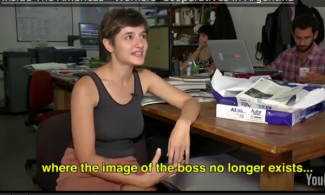
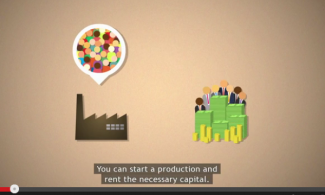
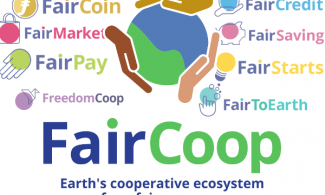
Add new comment